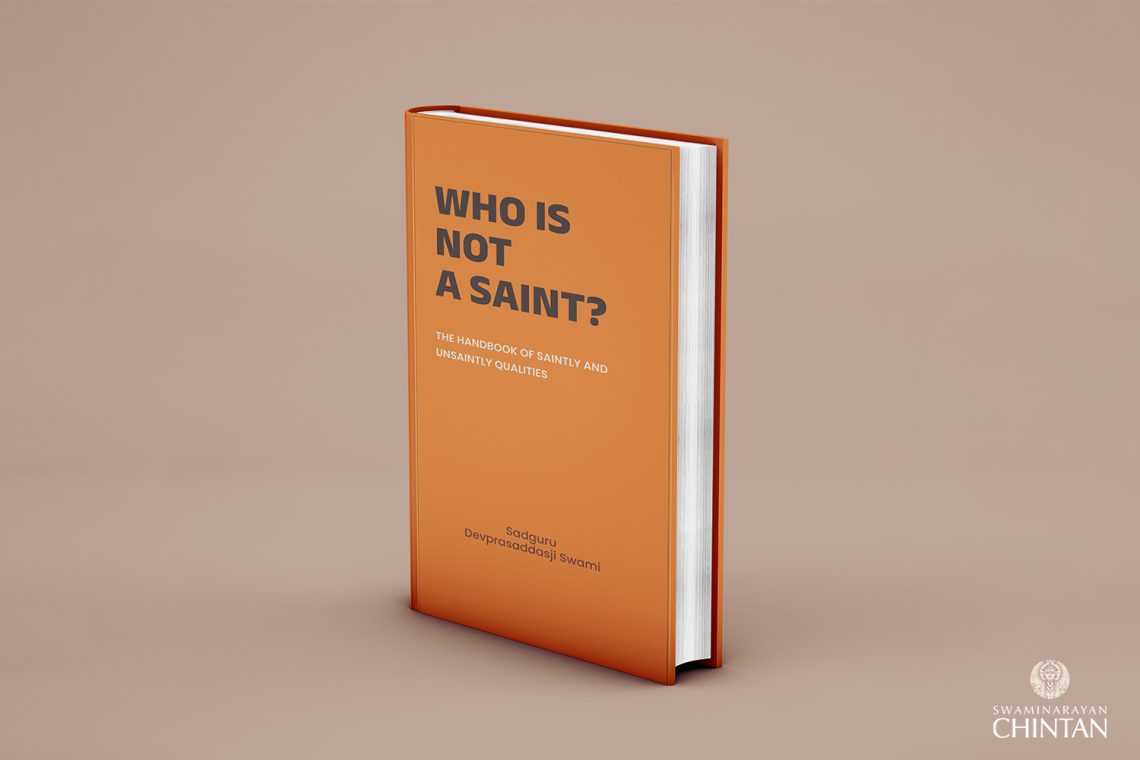If a person has all good qualities but is a fool, that makes him unsaintly even if he has all other saintly qualities.
A saint or devotee should at least not be a fool.
What is the meaning of foolishness?
If we are unable to be thoughtful and intelligent, we are called fools. If we don’t know what is good for ourselves and what is bad for ourselves, then we are called fools. Thus, a fool doesn’t know if doing a particular work is good for him or bad for him.
Foolishness and fakeness are not the same, but they are closely related.
Does a fake saint work?
Yes, he does a lot of work to protect his fakeness.
What is the final fruit of working on protecting fakeness?
Eventually, his fakeness would be revealed, or he would be fooled by his own efforts. He doesn’t know if being fake does him good or bad, and so, he is a fool.
He knows that someday his fakeness is going to bring him sorrow, yet he continues to fake with the hope that no one will be able to find his fakeness.
Thus, a fake saint puts a lot of effort into protecting his fakeness, yet the final fruit of all those efforts is worthless.
Foolish decisions don’t hurt immediately
When we know our efforts in a particular direction result in no fruit, yet if we continue to put efforts in that direction, that is called foolishness.
When does a foolish decision hurt?
Let us take an example. Let us say there is a kid whose father is working very hard to pay his tuition fees.
Once, when the father gave him money to pay the fees, he took the money, threw a party for his friends, and thus didn’t end up paying the fees. He eventually discontinued his studies and continued to enjoy his youthful days.
He took the tuition fees and partied. Is he not a fool? That foolishness doesn’t hurt him when he is enjoying his youth. When he grows up, has a kid, and the kid does the same thing with his hard-earned money, then it hurts him a lot.
He would then think “If I had studied with the money my father gave me to pay the fees, how good would I have been?”
Thus, foolish decisions don’t hurt immediately but hurt at a later point in time.
The foolishness of a person doesn’t hurt him but others
A mentally unstable person will have no pain in his mental state but all the people around him will have the pain of being with him.
Similarly, the foolishness of a person brings him joy but hurts all the people around him.
If a person has an ego, his ego might bring him joy but hurts everyone around him. If there is a meeting with an egoistic person, he would be happy while all the people around him would be worried about handling and dealing with him.
All mental diseases are similar: the person who has the disease will not suffer while all the people around him would suffer.
Cancer has a cure, AIDS has a cure, all diseases have a cure, but there is no cure for foolishness.
शक्यो वारयितुं जलेन हुतभुक् छत्रेण सूर्याSSतपो
नागेन्द्रो निशिताङ्कुशेन समदो दण्डेन गोगर्धभौ |
व्याधिर्भेषजसंग्रहैश्च विविधैर्मन्त्रप्रयोगैर्विषं
सर्वस्यौषधमस्ति शास्त्रविहितं मूर्खस्य नास्त्यौषधम् ||
shakyo vaarayitum jalena hutabhuk chatrena sooryaatapo.
naagendro nishitaankushena samado dandena gogardhabhau.
vyaadhir-bhaishaja-sangrahaishcha
vividhair-mantra-praypgair-visham
sarvasy-aushadhamasti shaastra-vihitam moorkhasya naasty-aushadham.
[Slok 11. Nitishatak by Bhartrihari]Definition: A fire can be turned off with water. Sunlight can be blocked using an umbrella. An elephant can be controlled with an ankush. A donkey or a bull can be made to obey orders with punishment. A disease can be cured with medicine. A snake bite can be cured with some mantras. In this world, everything can be cured except foolishness.
The only possible cure for foolishness is knowledge. Yet, if someone tries to make a fool understand, he opposes and in turn says, “You fool, are you trying to make me understand?”
And so, Sadguru Gunatitanand Swami has said:
mariye mahavish khay pan murak mitra na kijiye.
Definition: Die by consuming poison instead of associating with a fool.
References:
- Chosathpadi Katha Part 22 (Pad 23, 24).
- Chosathpadi Katha Part 24 (Pad 29-32).
- shakyo vaarayitum jalena – Sanskrit Subhashitas: आज का सुभाषित / Today’s Subhashita. (mcjoshi21.blogspot.com)

